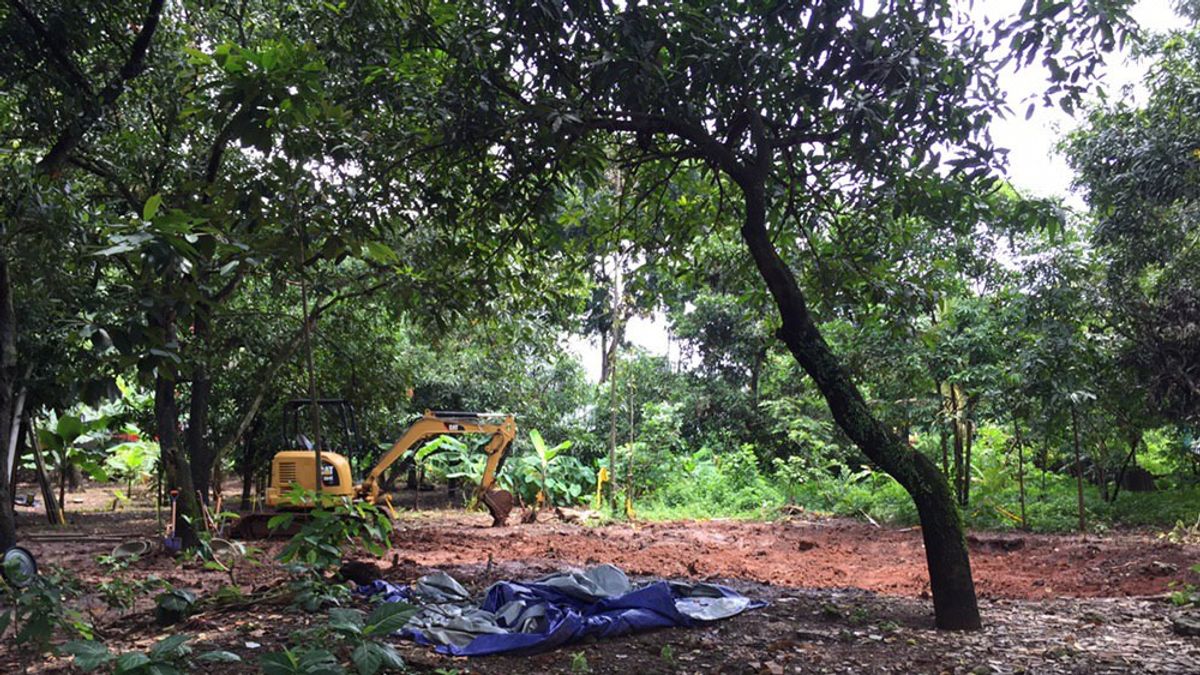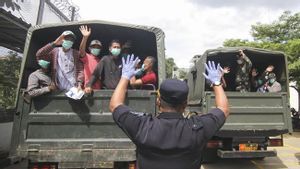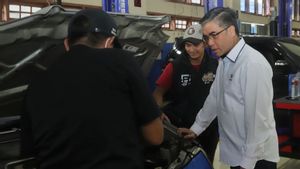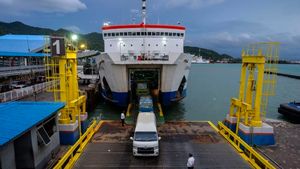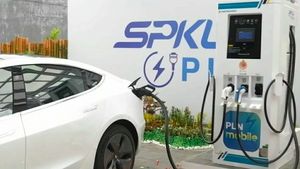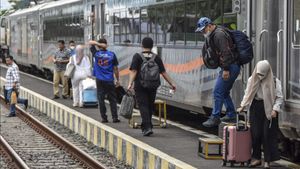JAKARTA - Radioactive waste found in Batan Indah Housing, Serpong, South Tangerang made residents worried. It was even reported that two of its citizens were positively contaminated by radioactive substances.
Main Secretary of the Nuclear Energy Monitoring Agency (Bapeten), Hendriyanto Hadi Tjahyono, said the contaminated residents lived near the location where the radioactive waste was found. Hendriyanto said those who were contaminated were still below the radiation dose limit value for the general public so they were not medically dangerous.
"Of the nine residents who were examined, there were two indicated or measured contamination of Cesium 137 or radioactive substances," said Hadi when confirmed by VOI, Friday, February 21.
This was confirmed after the National Nuclear Energy Agency (Batan) under Bapetan conducted a whole body counting (WBC) examination of nine residents suspected of being exposed to radiation. The residents live in blocks H, I, and J in the housing complex.
However, Hadi said that the cesium-137 contamination of the two residents was very small, with a breakdown value of 0.12 and 0.5 milisieverts, respectively.
The value of the contamination, said Hadi, is still below the dose limit value (NBD) that can be accepted by the human body by 1 milisievert or if in microsievert the number is 1000. So that it does not cause any biological or health impacts.
"Where the dose is below the limit value, there is no biological impact. There is no health impact," Hadi said.

Where Does Radioactive Waste Come From
The source of radioactive waste found in an empty field in Batan Indah Housing, Tangsel is still a big question mark. The reason is it is not yet known who the owner or person is who disposed of the Cs-137 or Cesium 137 type waste.
This assumption is not without reason, because, Cs-137 is not an object that can be obtained easily. To get it, it must be under the supervision of the National Nuclear Energy Agency (Batan).
In general, the process of obtaining it begins with parties wishing to use radioactivity as an industrial and health raw material to write a letter or request a recommendation from Batan.
Then, the Batan will examine these parties from various sides to determine whether they are worthy of being radioactive users. If the conditions are fulfilled, then a recommendation will be issued.
"If the permit has been granted, we will continue to monitor where these parties will buy this radioactive compound. Because there are two ways, they buy from abroad or from the state-owned company that made it," said PR of the Nuclear Energy Supervisory Agency (BAPETEN), Abdul Qohhar to VOI.
If the buyer chooses to get radioactive from abroad, then, Batan will recommend importers who have been certified in this regard. After everything is finished and the radioactive compounds arrive in Indonesia, the importer will write to Batan about the identity number of the imported goods.
The goal is to collect data on radioactive substances circulating or used in Indonesia. The same thing must be done during the delivery process until arriving at the destination.
"All processes are monitored, it cannot be arbitrary. Data collection is carried out on all parties who use radioactivity," said Qohhar.
In addition, the PR of the National Nuclear Energy Agency (Batan) Purnomo said that it was not only when they arrived and used radioactivity that users had to report them.
The same thing must be done when industrial or health equipment containing radioactive compounds is no longer used. This is because waste management must be collected in Batan in accordance with law number 10 of 1997 concerning nuclear power.
"The collected waste continues to be stored in radioactive waste storage at BATAN," said Purnomo.
Law number 10 of 1997 regarding nuclear power contains four points, namely;
a. that nuclear power concerns the life and safety of many people, therefore it must be controlled by the state, whose use for national development is aimed at realizing a just and prosperous society that is evenly material and spiritual based on Pancasila and the 1945 Constitution;
b. that the development and utilization of nuclear energy in various fields of human life in the world is so advanced that its utilization and development for a sustainable and environmentally sound national development needs to be increased and expanded to contribute to improving the welfare and competitiveness of the nation;
c. that for the sake of safety, security, tranquility, health of workers and community members, and protection of the environment, the use of nuclear energy is carried out appropriately and carefully and is aimed at peaceful purposes and for the maximum benefit for the welfare and prosperity of the people;
d. that due to the nature of nuclear energy, besides being able to provide benefits it can also cause radiation hazards, every activity related to nuclear power must be regulated and supervised by
The English, Chinese, Japanese, Arabic, and French versions are automatically generated by the AI. So there may still be inaccuracies in translating, please always see Indonesian as our main language. (system supported by DigitalSiber.id)
